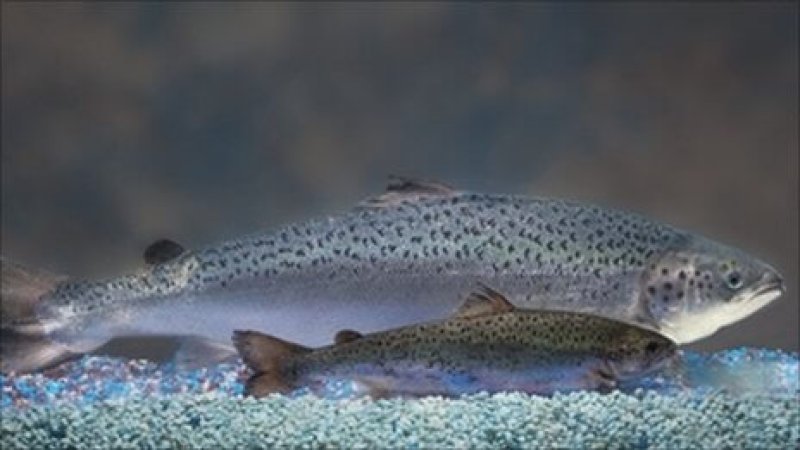Fears from environmental groups who oppose a genetically modified salmon are unfounded, says CEO of AquaBounty, the company that developed the GM salmon.
The GM salmon contains a gene from a Chinook salmon that allows it to grow to market size in half the time. Earlier this week, the Canadian environmental protection agency, Environment Canada, approved the salmon for commercial production in another hatchery in Panama. The approval announcement prompted environmental groups to speak up, claiming that if just one salmon were released into the wild, there could be “disastrous consequences.” Lucy Sharratt of the Canadian Biotechnology Action Network said that the decision was “alarming” because it was made without the public’s knowledge.
However, Ron Stotish, the CEO of AquaBounty, says that the hatchery on Prince Edward Island is “perhaps the most scrutinized facility in the history of fisheries.” The salmon and the hatchery were evaluated “dozens of times a year” by multiple government agencies, including Environment Canada and the Department of Fisheries and Oceans. They examined procedures, records and the facility itself. Stotish speculates that the inspections “may have set the standard for inspections of facilities of this type.” The latest review included a risk assessment by the DFO that found, “with reasonable certainty,” that operations at the Prince Edward Island hatchery pose a low risk to the environment.
The Canadian approval only allows commercial production of the GM salmon. Before the salmon can be released commercially for human consumption, it must first be approved by the US Food and Drug Administration.
Read the full, original story here: GMO salmon criticisms ‘don’t merit comment’
Additional Resources:































